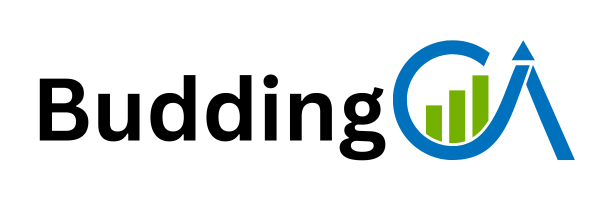Banking interviews are one of the most sought-after opportunities for Chartered Accountants (CAs) due to the vast scope for growth in the financial sector. With their expertise in accounting, financial analysis, taxation, and compliance, CAs are well-positioned to take on pivotal roles in banks. However, securing a job in a bank requires more than just technical knowledge—it involves a well-rounded approach that combines your skills, knowledge, and personality.
In this detailed guide, we will walk you through the various steps and strategies to ace banking interviews and secure your dream job in the banking sector.
Understanding the Banking Industry
Role of Banks in the Economy
Banks play an integral role in the economy by facilitating financial transactions, supporting business operations, and promoting economic growth. Banks act as intermediaries between borrowers and lenders, making it easier for individuals and businesses to access financial resources. As a CA, understanding this foundational role helps you relate your skillset to the objectives of banks.
How CAs Fit into the Banking Sector
For Chartered Accountants, the banking sector offers a multitude of roles, including positions in auditing, risk management, financial analysis, compliance, and internal controls. CAs are highly valued for their ability to interpret financial statements, ensure compliance with regulations, and provide valuable insights into financial health. Positions such as Credit Manager, Relationship Manager, Risk Analyst, and Internal Auditor are ideal for CAs, offering long-term career growth and opportunities.
Know the Key Roles in Banking for CAs
Banks offer various roles that are tailored for CAs. It is crucial to understand these roles in detail, so you can align your preparation with the skills required for each.
Credit Manager
As a Credit Manager, your primary responsibility is to assess the creditworthiness of individuals or businesses seeking loans. You will need to analyse financial statements, calculate credit ratings, and determine the risk associated with lending money. This role requires a deep understanding of financial ratios, liquidity analysis, and risk management.
Relationship Manager
A Relationship Manager builds and maintains client relationships, ensures client satisfaction, and promotes the bank’s products and services. This role demands excellent communication skills, an understanding of banking products, and the ability to provide customised solutions based on clients’ financial needs.
Risk Analyst / Internal Auditor
The Risk Analyst and Internal Auditor roles focus on identifying, evaluating, and mitigating risks in the bank’s operations. CAs in these roles help banks comply with regulations, assess operational risks, and improve internal controls. Both positions require strong analytical skills and knowledge of financial risk management.
Prepare for the Core Technical Questions
Master Banking Terminology
Banks use specific financial jargon, and it is essential to understand these terms before you walk into the interview. Some key terms you should be comfortable with include:
- Net Interest Margin (NIM): A key indicator of a bank’s profitability, reflecting the difference between interest earned on loans and interest paid on deposits.
- Liquidity Ratios: Ratios like Current Ratio and Quick Ratio help measure the bank’s ability to meet short-term obligations.
- Debt-Equity Ratio: This ratio helps assess the bank’s financial leverage.
- Gross Margin: Reflects the bank’s ability to retain revenue after deducting direct expenses.
- Leverage: Refers to the use of debt to finance investments, with higher leverage signifying more risk.
Know the Basics of Financial Ratios
As a CA, you will likely be asked to interpret financial statements during your interview. Mastering financial ratios such as Liquidity Ratios, Profitability Ratios, and Leverage Ratios is crucial. Be ready to explain how these ratios are used to assess a bank’s financial health.
Understand the Structure of Banking Interviews
The General Structure of a Banking Interview
Banking interviews typically follow a structured format, starting with icebreaker questions and moving on to technical and situational questions. Here’s what you can expect:
- Icebreaker Questions: These are designed to put you at ease. The interviewer may ask, “Tell me about yourself” or “Walk me through your resume.” You should be prepared to give a concise, engaging overview of your academic and professional journey.
- Motivation and Career Goals: Expect questions like, “Why do you want to join this bank?” or “What are your long-term career goals?” Be sure to research the bank and align your answer with its mission, values, and strategic goals.
- Technical Questions: These questions will test your knowledge of accounting, financial ratios, and banking products. You may be asked to explain financial concepts such as Net Interest Margin, Return on Assets (ROA), or how you would analyse a company’s balance sheet.
- Situational Questions: Banks often ask situational questions to assess your decision-making abilities. For example, “If a client is incurring losses but requests a loan, what would you do?” Prepare to answer these by considering both the financial and ethical aspects of the situation.
Research the Bank Thoroughly
Study the Bank’s History and Mission
Research the bank’s About Us section on its website to learn about its history, mission, and values. This knowledge will help you answer questions about why you want to join the bank, demonstrating your interest and commitment.
Understand the Bank’s Products and Services
Familiarise yourself with the bank’s offerings, such as personal loans, home loans, credit cards, and investment products. Understanding these products will allow you to discuss them intelligently and demonstrate your awareness of the bank’s operations.
Stay Updated on Recent Developments
Read up on the bank’s recent news, product launches, or market expansions. Keep an eye on press releases or articles in financial news portals to understand the bank’s strategic direction. This shows your proactive approach and will help you in the interview.
Practice Your Communication Skills
Clear and Concise Communication
Effective communication is critical in banking interviews. CAs often need to present complex financial information in a clear and concise manner. Practice explaining financial concepts, such as credit risk or liquidity ratios, using simple language.
Professional Appearance and Body Language
Banking professionals are expected to be well-groomed and confident. Dress formally, maintain eye contact, and exhibit positive body language throughout the interview. First impressions matter, and your appearance and demeanour play a significant role in how interviewers perceive you.
Understand the Soft Skills Required for Banking Roles
Problem-Solving Skills
Banking involves addressing challenges such as identifying risks, improving financial performance, or managing client relationships. Be prepared to discuss instances where you solved a problem, whether in your articleship or academic projects.
Teamwork and Collaboration
While technical skills are essential, banks also value candidates who can work well in teams. Highlight experiences where you collaborated with others, whether in group projects or work settings, to demonstrate your ability to work effectively in a team-oriented environment.
Adaptability
The banking sector is dynamic, with constant changes in regulations and technologies. Demonstrate your adaptability by discussing situations where you had to quickly learn new tools, processes, or regulations, such as GST or the introduction of new accounting standards.
Prepare for Behavioral Questions Using the STAR Method
The STAR Method is a structured way to answer behavioural interview questions. Here’s how it works:
- Situation: Describe a situation you encountered.
- Task: Explain the task or responsibility you had in that situation.
- Action: Outline the steps you took to address the task.
- Result: Share the outcome, and if possible, quantify the result (e.g., “I reduced audit discrepancies by 20%”).
Practicing the STAR method will help you provide clear, focused answers that highlight your skills.
Ask Thoughtful Questions
At the end of the interview, you will likely be asked, “Do you have any questions for us?” Use this opportunity to demonstrate your interest in the bank and the role. You can ask questions such as:
- “What are the key challenges faced by new employees in this role?”
- “How does the bank support career development and growth for Chartered Accountants?”
- “Can you share some insights into the team culture and work environment?”
Follow-Up After the Interview
After the interview, it is always a good idea to send a thank-you email. In this email, express gratitude for the opportunity to interview and reiterate your enthusiasm for the position. This simple gesture demonstrates professionalism and reinforces your interest in the role.
Final Thoughts
Cracking a banking interview as a Chartered Accountant is a blend of showcasing your technical skills, understanding the banking landscape, demonstrating strong communication abilities, and displaying a positive attitude. By preparing thoroughly—whether it’s mastering key banking terminology, researching the bank, practicing situational responses, or improving your soft skills—you can confidently walk into your banking interview and leave a lasting impression.
Calling all CA dreamers!
🔴 Are you tired of searching for the perfect articelship or job?
Well, fear no more! With 10K+ students and professionals already on board, you don't want to be left behind. Be a part of the biggest community around! Join the most reliable and fastest-growing community out there! ❤️
And guess what? It’s FREE 🤑
✅ Join our WhatsApp Group (Click Here) and Telegram Channel (Click Here) today for instant updates.




